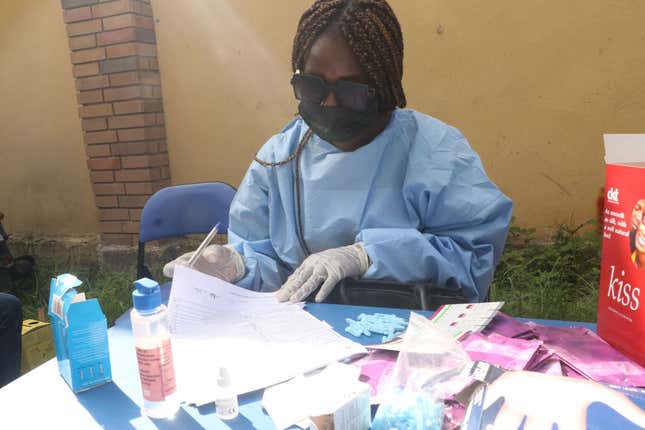
As the overall jobs market is said to be surging, it has not been the same for Black women. A report by Brookings shows that the unemployment rate for Black women increased from 4.9% in November to 6.2% in December. Even with the Black women who are employed, they still have to fight through racial biases and injustices.
In the health care field, racism has been the most challenging it’s ever been. According to Axios, Black women “widely represented in health care than any other demographic group, yet they’re concentrated in its lowest-wage and most hazardous jobs.”
From a study published by Health Affairs, “Black women make up about 7% of the U.S. labor force, they make up nearly 14% of the health care workforce.”
Information about the gap in wages is even more alarming when you look at the data.
Although the health care industry includes a wide range of jobs, the parts of the sector in which Black women are concentrated are characterized by low wages, lack of benefits, and hazardous working conditions. The mean hourly wage in 2019 for home care workers was $12.12, residential care workers earned average wages of $12.69 per hour, and nursing assistants in nursing homes earned $13.90 per hour. One in six home care workers live below the federal poverty level, and nearly half live in low-income households.
Among Black and Hispanic female direct care workers specifically, about 50 percent earn less than $15 per hour.
Specifically, nursing in America has a stark contrast on who experiences racism in the workplace. A survey of more than 5,600 nurses by the National Commission to Address Racism in Nursing was done to see how deep the division runs.
Compared with less than a third of white nurses surveyed, more than 90% of Black nurses say they’ve experienced racism. More than 70% of Asian nurses report the same, along with 69% of Hispanic nurses.
About 3 of 4 nurses say they witnessed racism in the workplace, but efforts to counter or confront it were futile. More than half say they challenged racialized treatment in the workplace, and 64% said no changes resulted from their efforts.
More than three quarters of Black nurses surveyed say racism in the workplace affected their well-being. About 70% report experiencing discrimination directly from health care facility leaders, 68% from patients and 66% from their own peers.
Kechinyere Iheduru-Anderson, a Nigerian-born nurse who now directs Central Michigan University’s nursing program after three decades in the field, had her calls of racism brushed off by supervisors and spoke to USA Today:
“The history of nursing is rooted in segregation and discrimination. It is a microcosm of what is happening in society,” she said. “For the most trusted profession, it is kind of ironic, isn’t it? The profession that is supposed to care for people that cannot even care for its own constituents.”
By conducting this survey, Ernest Grant, the commission’s co-leader and president of the American Nurses Association hopes to increase awareness of racism in the nursing field. Currently, 73% of the nation’s registered nurses are white; 7.8% are Black, 5.2% are Asian, 10% are Hispanic or Latino, and less than are 1% Indigenous as noted in a survey by the Health Resources and Service Administration.
“It’s like an open wound that continues to fester, and it’s not going to get better. If anything, it’s going to get worse,” he said. “By bringing this issue to the light, we can begin to address it as a profession.”



